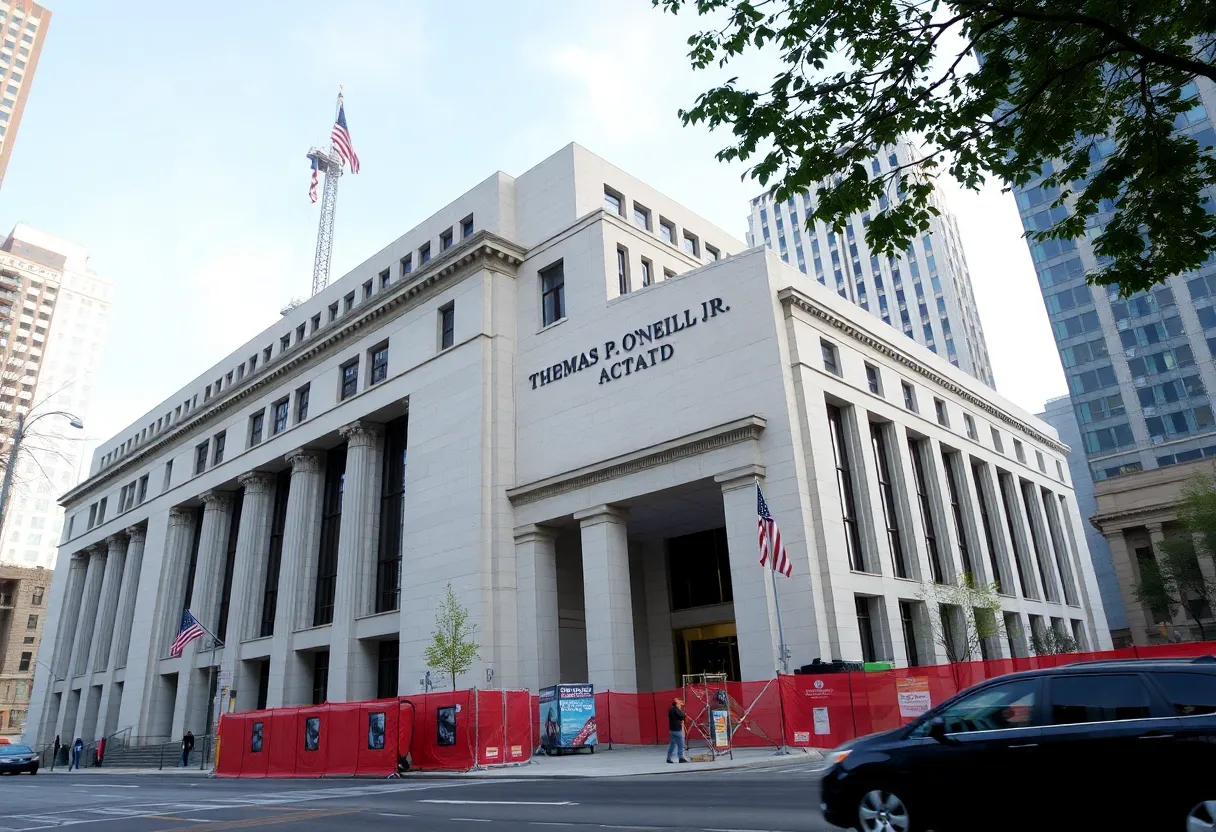News Summary
The U.S. Small Business Administration (SBA) has announced its relocation from Boston’s Thomas P. O’Neill Jr. Federal Building, part of a broader strategy concerning sanctuary cities. As the SBA reacts to federal immigration regulations, the move signifies changes in access to funding for small businesses amid shifting city-federal relations. Along with the relocation, a new requirement for loan applicants to verify citizenship status has been introduced, raising concerns for local entrepreneurs about the future of federal support.
Boston’s Small Business Administration Office is Packing Up!
Boston is buzzing with news as the U.S. Small Business Administration (SBA) has made a head-turning announcement. The SBA is relocating its regional office, currently nestled in the Thomas P. O’Neill Jr. Federal Building right next to North Station. This shift is not just about moving bricks and mortar; it’s part of a broader strategy to exit cities that have been designated as sanctuary cities.
What’s a Sanctuary City Anyway?
For a quick recap, sanctuary cities are places that limit their cooperation with federal immigration enforcement officials. In simpler terms, they offer a softer landing for undocumented immigrants. This characteristic has caught the SBA’s attention as they decide to move out of Boston and other similar cities, including Chicago, Denver, Atlanta, and Seattle. The federal agency claims that these changes are in response to non-compliance with U.S. Immigration and Customs Enforcement (ICE) regulations.
Timing of the Announcement
The announcement followed closely on the heels of Boston Mayor Michelle Wu defending the city’s immigration policies during a Congressional hearing, which makes this development even more noteworthy. The timing suggests a clash of priorities between city and federal approaches to immigration and business support.
Changes on the Horizon
One of the most significant changes accompanying this relocation is the introduction of a new requirement for SBA loan applications. From now on, applicants will need to verify their citizenship status, ensuring that only legal applicants can access SBA programs. This step is aimed at making sure that taxpayer dollars are reserved for those who are legally allowed to start or grow their businesses.
What Happens Next?
Currently, the Boston office employs a total of 11 people, and they are split between the Boston office and Springfield. While the Springfield office could potentially remain open, there has been no final decision announced just yet. The SBA has not nailed down a timeline for when the Boston office will officially close its doors or where it might relocate to in the future. This uncertainty leaves employees and local business owners in limbo about the federal support they depend on.
The O’Neill Building: What Lies Ahead?
The O’Neill Building isn’t just home to the SBA; it also houses other federal agencies such as Social Security, Homeland Security, and the Department of State. There was even talk in the past about potentially selling the building, but that list has mysteriously disappeared. It certainly raises questions about the future of this federal hub in Boston.
The Big Picture
This decision aligns with the ongoing immigration-focused policies put forth by the federal government. The restructuring reflects a shift in priorities that have a ripple effect on small business funding and support, particularly in urban areas with progressive immigration policies. Everything feels like it’s in a state of flux, as cities like Boston, which have long been welcoming to immigrants, now face new challenges in how to maintain that status while still supporting local businesses.
Looking Forward
While the details remain sparse, the buzz around Boston is palpable. What does this mean for small businesses? Will they be left without the support they need? As local entrepreneurs wait for answers about future funding and resources, one thing is clear: the landscape of small business support is changing. As we continue to navigate these shifts, all eyes will be on both the SBA and city leaders. Will they find common ground, or will this be a turning point in how cities interact with federal agencies? Stay tuned!
Deeper Dive: News & Info About This Topic
HERE Resources
Reflecting on the Impact of the Paycheck Protection Program in Massachusetts
Brandon Woman Sentenced for Massive Fraud Scheme
Boston Mayor Defends Immigrant Rights Amid Controversy
Major Changes Ahead for U.S. Small Business Administration Offices
Boston Celebrates Black History Month with New Gallery
Additional Resources
- MassLive: SBA Office to Move Out of Boston
- NBC Boston: SBA Boston Office Moving Out
- AP News: Small Business Administration and Sanctuary Cities
- Wikipedia: Sanctuary City
- Google Search: Small Business Administration








